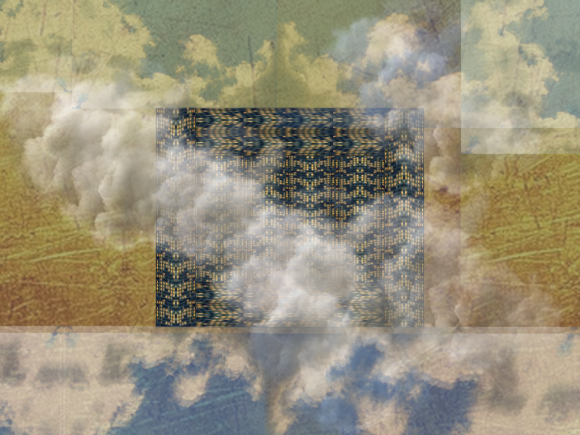There’s still a lot more interesting things to say about my recent topic, the situation I presented as variations over the death of Damocles. So far, I’ve begun looking into our felt need for “explanations”, and then stepped back for a moment for a brief terminological catch-up. Now we’re taking up the thread again where we left it.

7. Does it need explanation that Damocles died at the same time as the clock stopped, or is it the other way round: do we have to explain that the clock stopped at the same time as death occurred? (Or is it, somehow, both?) Such questions usually aim at a type of explanation that invokes some lawlike connection to show that one of these events brought the respective other about. (Or, in the bidirectional interpretation where it is somehow both, that something third had brought them about jointly.) Is that, in the end, what we’re looking for?
To find out, we can put our questions in counterfactual terms. If Damocles had died twenty minutes earlier, would the clock have stopped earlier, too? Or if the clock had been wound up just a little less, and it stopped twenty minutes earlier, would then Damocles have died earlier than he actually had? (Lawlike connections are stable under counterfactual scenarios. So if we answer some of them in the affirmative, that’s presumably a clue to where we’re heading for.)
When we approach the question like this, we can immediately see the value of having our analogy at hand: the analogy, that is, between you writing these interesting coincidences into a novel and a similar real-world story. We’ve been through that analogy in detail, and I have pointed out some imperfections. But we can use it now to see how the two variants, that of the novel episode and that of the real-world story, handle the counterfactual scenarios.
Consider the novel variation first. For you, the novelist, the central event is certainly the death: what happens to Damocles, and not what happens to the clock. The latter is just an additional metaphorical way of bringing the death and its significance to the reader’s attention. (Unless, of course, this is a weird sort of surrealist novel where clocks are more central, narratively, than the people who also happen to be around. It’s not inconceivable, but something of a fringe case, so let’s leave that aside.) So, if for some plot reason you have to change the time of death, you’d likely rewrite the portion about the clock stopping, too. However, if there is a plot reason why someone else, such as Cassandra, only could notice the clock stopping earlier, then you’d have to bite the bullet and rewrite the portion around the death, to make it fit. That is supposing, of course, that it is more important to you to have the metaphorical extra event in your plot than what time precisely you put Damocles’ death. Perhaps, if logistical complications stack up, you might simply decide that the clock episode is not worth the trouble. But generally speaking, the answer to both our counterfactual questions seems to be affirmative in the novel variant.
What all this shows is that the relevant considerations here are of two kinds: your, the author’s, plot design requirements, and the reader’s perception of the metaphorical significance. These two determine how the events in the plot and their connections must be arranged. Yet as we have seen, these are precisely the points where our analogy turned out to be imperfect: in the real-world case, there is no author who can introduce or drop events (such as the clock stopping) at will, nor move their timing around. And there’s no reader expectation that in a given episode everything, any event and its characteristics, have plot meaning. These considerations are precisely what doesn’t transfer from one analogue to the other. Perhaps then the affirmative answers to the counterfactual questions won’t carry over to the other analogue as well?
Well, let’s look at the real-world scenario now, asking them again: had Damocles died earlier, would the clock have stopped earlier, too? And if, conversely, the clock had run out earlier, would then Damocles have died earlier? I think most people’s intuition here is that neither would have occurred: had one of these events shifted in time, the other wouldn’t have, and we’ve no longer had an interesting phenomenon (in this particular case).
Consider this. In the real world, a lot of people die every day outside their houses, a portion of whom have grandfather clocks back home. Among those, the scenario we’re looking at is thus a possibility, though it has of course a small probability: only a fraction of these the deaths would coincide with the moment their respective clock happens to stop, plus someone noticing the coincidence, perceiving the metaphorical significance, and telling the story around. We have picked the death of Damocles (in its real-world variation), which in the actual world is just such a case. But under the counterfactual assumption that Damocles would have died earlier, we’d simply have had an uninteresting episode, in that possible world. It would never have made the talk of the village, let alone the local newspapers. In that counterfactual scenario, we wouldn’t have picked the death of Damocles as our example, but instead a different real-world story, one which, in this scenario, did happen to have a coincidence. The same applies to the converse counterfactual assumption, the one where the clock had stopped earlier. It would have left the Damocles story unremarkable, vanishing from our radar, being replaced by some other story.
But doesn’t this, surprisingly, show that the analogy still holds?
We found that the analogy is imperfect in that in the real world, there is no author who can control which events happen (and when), but we have also seen that there is a teller of the story nonetheless, who cannot make events happen (or fix their timing), but who can select them, presumably from a pool of events which contains, among many others, a set of events that fits. In that weaker sense (and assuming there are at least some fitting cases to select from), the analogy still holds. And so do our counterfactual intuitions: just as in the novel variant the author would ensure the simultaneity of the two events, if necessary by shifting them in concert and thereby restoring the timing, should one of them have to be moved for independent reasons, so in the real world would the teller, too, albeit in this case by selecting an actual episode by the criterion of simultaneity to begin with. The effect is the same: in the resulting story, the events happen at the same time, and if counterfactually one had moved, then so would have the other. (The same reasoning applies to the second imperfection, which concerns the reader side rather than the author side.)
And if this is true, and the analogy still holds, then, all things considered, the answer to our counterfactual questions turns out to be once more affirmative. For both of them, too.
8. We have also found now, interestingly, that the timing of the events has a peculiar status: it seems to be required (both in the novel and in the real world variants) for there to be an interesting phenomenon in the first place; that phenomenon has to be, in a word, a coincidence as of necessity. I suspect the reason for that, strangely, is that if the events weren’t timed that way, we would tend to look for our explanation in their temporal sequence.
Making them simultaneous prevents that: it excludes a particular type of explanation, namely, one in which one event brings the other one about. (With such a type of explanation, we’d answer one of the counterfactual questions in the affirmative, the other in the negative.) Such an explanation would be strained in any case: causally, the events appear unrelated, so there would have to be either some elaborate (and partially hidden) scheme behind the causal chain, or else we’d have to start stipulating weird quasi-causal forces (some form of “magic”, some as yet undiscovered law of nature, or the like). But just as it was with the events themselves, it’s not the type of explanation we’re even looking for, when we recognize the sense that something “needs explanation” in these kinds of scenario. For with either of the events on its own, causal explanations were ready at hand (namely, those of the standard type), and yet we weren’t interested in them. With their timing, it seems we’re going out of our way to construct (in the novel scenario) or else select (in the real world stories case) the configuration of events expressly so that causal chains drop out as possible explanations.
That line of thought, however, is not entirely complete yet. For if a causal explanation was in fact what we’d felt the need for, and if it would be neither an explanation of any of the events (just by itself) nor of either of them as an effect of the respective other, we’d still have a third possibility: the two events could have a common cause of which they’d both be effects. (This would also be consistent with us answering both counterfactual probes affirmatively.) However, by the same reasoning as earlier, we would find that such an explanation was once more not what we’re looking for: we would again be in the scenario of foul play, hidden agendas, intricate plotting and the like. There would be an explanation, of the familiar kind (though likely an unusually convoluted one); but we would feel that this is once again no longer an instance of our phenomenon, an interesting coincidence, that is. (Indeed, we’d likely phrase it just that way: it had turned out to have not been a coincidence, dear Watson!)
(For simplicity, I have worked through this in terms of causality only; but it applies equally to “magic” or any other kind of lawlike principle we might suppose, as long as it involves the events being in succession, and the earlier one bringing the other about. Causality is merely the most likely form such a principle would realistically take. But for any other principle that shares this broader form the same reasoning would apply.)
This doesn’t mean, however, that we weren’t looking for explanation at all, or that we weren’t looking for explanation in terms of lawlike principles. In fact, the insistent feel that coincidences like those pictured in such episodes “need explanation” suggests that we do seek precisely that: explanations; and that we naturally think in counterfactual scenarios (and that our intuition had the simultaneity itself stable across them) indicates that we expect something like a lawlike principle to be part of that explanation. Yet at the same time we saw that the case is always constructed (in the novel variant) or selected (in the real world scenario) so as to specifically exclude laws which involve a temporal succession. Thus the lawlike principle we would expect should not be structured by temporal dependencies. (Laws, of course, don’t have to be structured like that. They might have the form of nomic constraints, such as the second law of thermodynamics, or Heisenberg’s uncertainty principle.)



